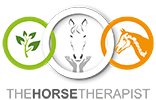The effect of nutrition on brood mares
A lot of people will start feeding mares certain nutrition only a couple of weeks or months before pregnancy. But you should be feeding a mare in a certain way YEARS before pregnancy.
What you see quite often is that people will start thinking about nutrition when the mare is pregnant or when the foal is born.
But it all starts with the mare and maybe even with the mares mother! So the grandmother.
Healthy feeding/ nutrition should start 3 generations ago.
A mare is building a foal in her body and certain nutrition is needed for that. But if the mare is already struggling with her own health then how can she develop a healthy foal?
People feed something to a horse and expect it to have a certain effect straight away. And maybe it will. But they don’t think about the consequence that it has on the long run, especially when it’s the wrong feed!
What effect does feed/nutrition have on the offspring?
When you have been in your mother’s womb and been fed good stuff/nutrients then you have healthier cells. Rather than being in a mares womb and getting concentrates like stud cubes. Foals are often also fed stud cubes during rearing. The emotional and physical state of the horse and the cell development gets influenced by this.
For example; At one stage during pregnancy the thyroid is developed. But if there aren’t enough nutrients then the thyroid is developed smaller.
So in order to make the thyroid bigger the body uses fat to do so. This happens will all organs. Which means that a foal that is lacking nutrients when being developed, will have smaller organs that are put together with fat to make it bigger.
Now, when a foal is born you can’t see if the liver or thyroid is smaller. Unless you dissect them.
You will usually start to notice health problems at a later stage.
Another example; When blood sugar levels are high during pregnancy, because of feeding special mare and foal concentrates that are high in sugar, can cause the foal to develop a sensitivity for sugars. Study shows that maternal obesity increased systemic inflammation in foals until 6 months of age, decreased their insulin sensitivity at 6 and 18 months and increased the development of osteochondrosis lesions.
The nutrition for the mare determines how the foal can handle this. It is the same with stress.
When the pregnant mare has stress, for example due to the environment( high stress is high cortisol levels ), This will be passed on to cells in the foal. So the foal can be sensitive to stress.
So even though you think you have a good brood mare and a famous stallion that covered her. You can still end up with an unhealthy foal. You will get a 2CV Citroen car instead of a brand new Mercedes.
Compare a Mercedes and a 2CV car (Citroen)
You would give Hamilton the Mercedes and not the old fashioned car. Why? Because the old car wont be able to handle the way Hamilton drives. And it is the same with horses. There are less and less Mercedes horses out there. But yet people expect the horse to perform, while it hasn’t been developed the right way!
Did you know that:
In the breeding world most people look at the stallions breeding line. But the mother is determinant of the genes.
· Colostrum is important for the foal`s immunity, by bringing him immunoglobulins, native immune cells and cytokines ,but also for his intestinal microbiota development, because of its effects on immunity as well as its richness in oligosaccharides.
· In other species, alteration of the intestinal microbiota at birth has been linked with metabolic diseases later in life. Colostrum quality could also affect the long-term health of the foal through its effects on intestinal microbiota. Colostrum quality may also be correlated to the osteoarticular development of foals.
· Most people are very selective with stallions but not with mares. What happens for example is that a mare with tendon injuries that can not be used in sports anymore is now used as a mare to breed with. But where does the tendon injury come from? This is important to know before you start breeding with her. ( can come from liver issues )
· A shortage of vitamin E can cause to loose the foal. Vitamin E can work as an anti-abortive.
· Arginine is needed for growth
· Choline is needed to help develop cells to make the foal. If there is a lack of this then you can get deformed foals.
· overnutrition is more likely to a problem than undernutrition
· Obesity in mares due to feeding of high-energy (high-concentrate) diets may lead to reduced glucose tolerance, altered pancreatic function, reduced insulin sensitivity and modified body composition in the foal.
What is healthy nutrition?
1. First of all, before you start breeding you need to lift shortages of the mare and make sure she is 100% healthy.
2. Feed hay instead of haylage. Haylage makes the gut acidic. And you want a healthy gut microbiome. So good quality hay is important
3. The quality of the water is important. Water can have high levels of iron in it for example
4. A vitamin and mineral feed without (genetically modified) soy, wheat, bran, oats, beet pulp, maize, barley, oils. And of course it needs to be low in sugars.
5. Healthy protein options are; spirulina, hemp seeds, pumpkin seeds, sainfoin certain amino complex supplements
6. A carrier for supplements and a daily healthy meal could be grass nuts that are low in sugar.
References
http://cbra.org.br/portal/downloads/publicacoes/rbra/v43/n2/p168-183%20(RB787).pdf
